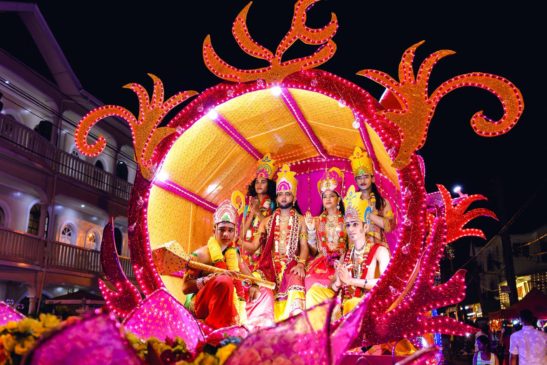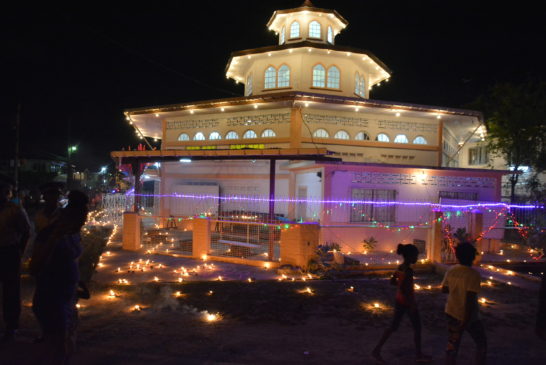 By Pandit Dhanesh Prashad
By Pandit Dhanesh Prashad
Deepavali or Diwali is the biggest and the brightest of all Hindu festivals. It is the festival of lights: deep means “light” and avali “a row” to become “a row of lights.”
There are many stories surrounding the origin if Diwali. The most famous would be the one that commemorates the return of Lord Rama (along with Ma Sita and Lakshman) from his 14-year-long exile and vanquishing the demon-king Ravana. In joyous celebration of the return of their king, the people of Ayodhya, the capital of Rama, illuminated the kingdom with earthen diyas (oil lamps).
The Goddess of happiness and good fortune, Mata Lakshmi, also figures into the celebration. It is believed that she roams the Earth on this day and enters the house that is pure, clean, and bright.
While the story behind Diwali varies from region to region, the essence is the same: to rejoice in the inner light and understand the underlying reality of all things. The spiritual meaning of Diwali is “the awareness of the inner light.”
At the heart, Hindu philosophy emphasizes the presence of that which is pure, infinite and eternal, which is something beyond the physical and the mind. Diwali is the celebration of the awakening and awareness of the Inner Light.
Although it is not seen externally, this Inner Light outshines all darkness, removes all obstacles and dispels all ignorance; it awakens the individual to one’s true nature, not as the body, but as the unchanging, infinite and

transcendent reality. With this inner realization comes universal compassion, love and the awareness of the oneness of all things — the Sat (Truth), Chit (Consciousness) and Ananda (Inner Joy). For
Hindus, this is the goal of life.
The festival symbolizes the victory of righteousness and the lifting of spiritual darkness.
Diwali is a time to turn inward and light the lamps of knowledge and truth in our hearts and minds so that we can dispel the forces of darkness and ignorance within us and allow our innate brilliance and goodness to shine forth. Goddess Lakshmi, the goddess of wealth, is the principle deity associated with this festival. During Diwali we ask her for assistance in cultivating and accumulating spiritual wealth, such as compassion, forgiveness, and loving-kindness.
Diwali is a time to reflect on and evaluate our thoughts, words, and actions over the past year. It is a time to acknowledge and better understand our prejudices, negative behaviors, and bad habits so that we may begin the process of transforming ourselves. Just as the flame of a lamp always points upward, Diwali is most importantly a time to celebrate and appreciate life and to look forward to the coming year with a renewed sense of purpose and passion.
A blessed Deepaavali to one and all!



